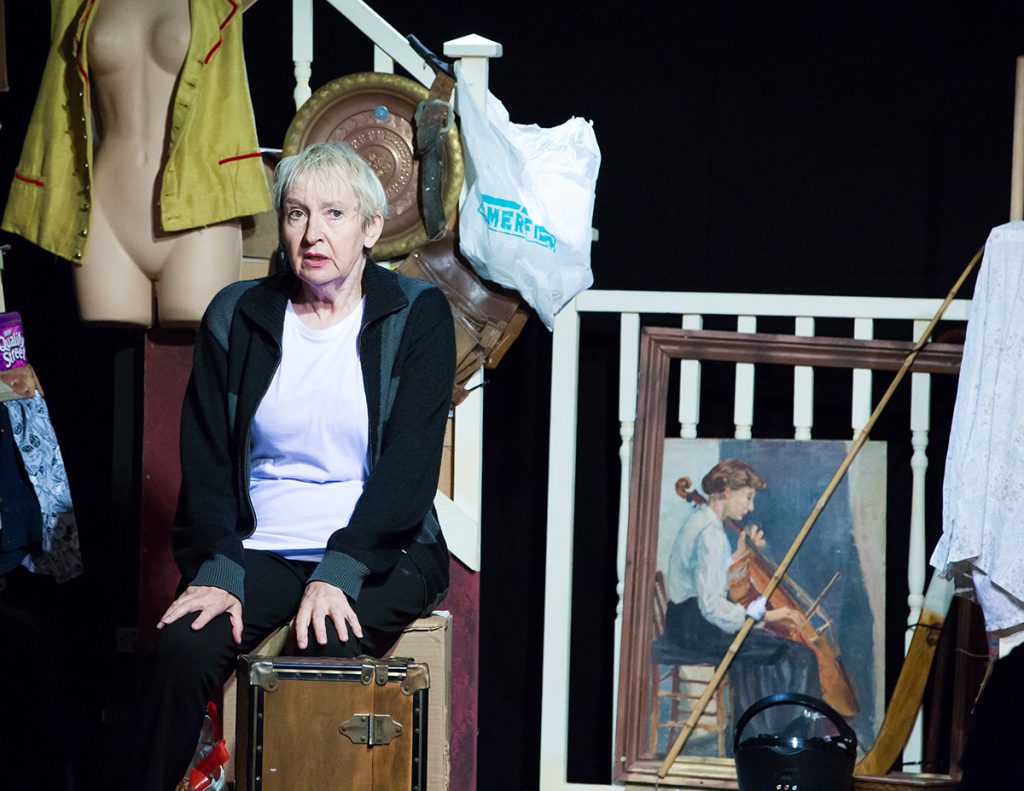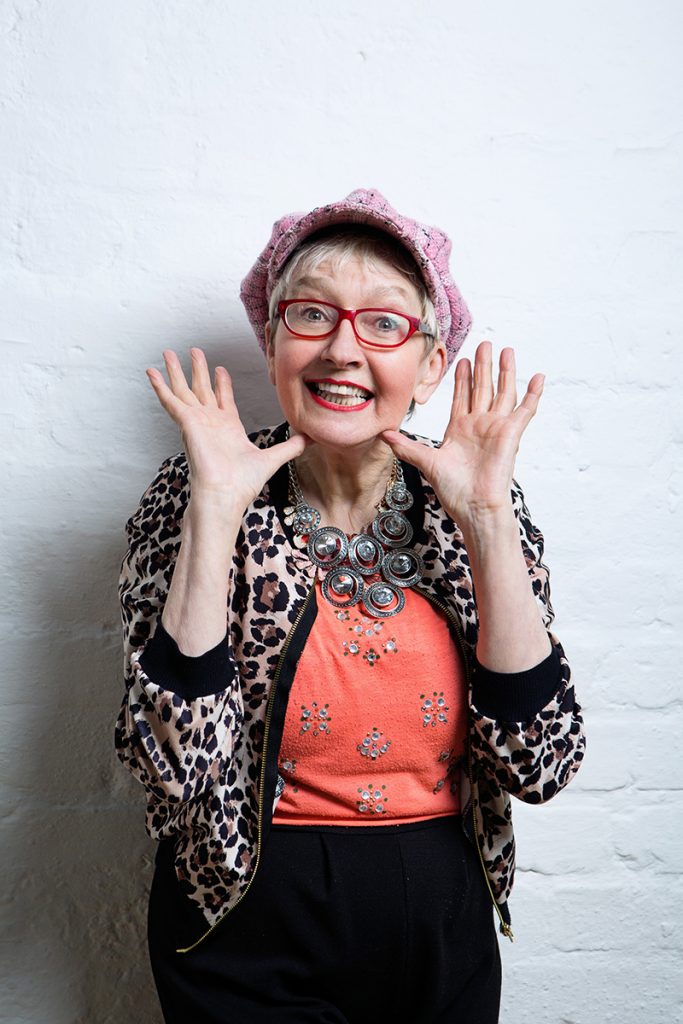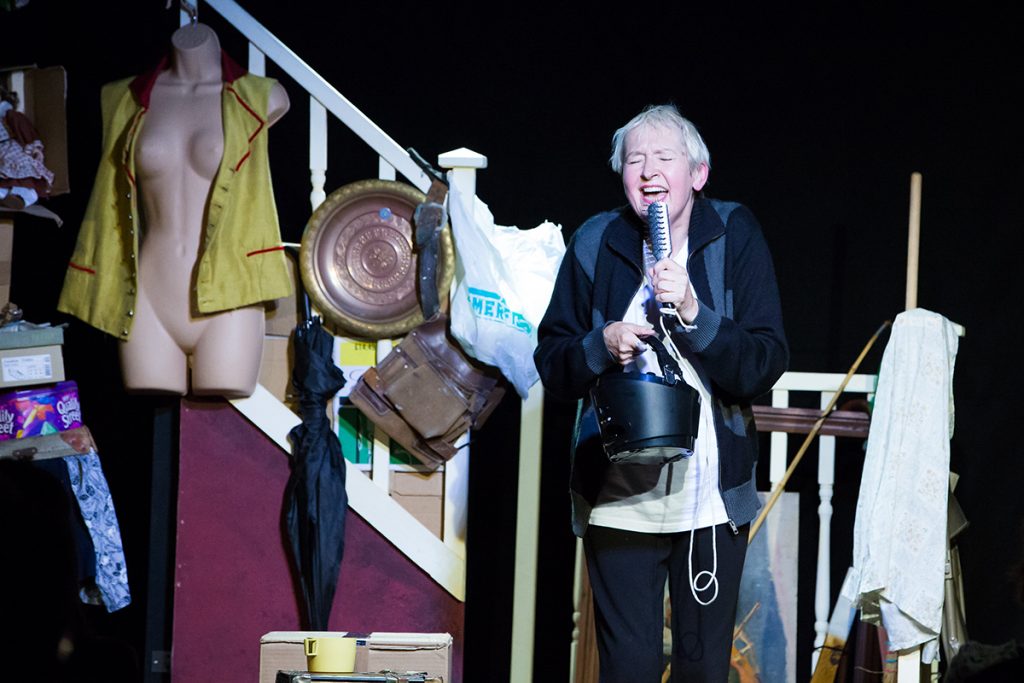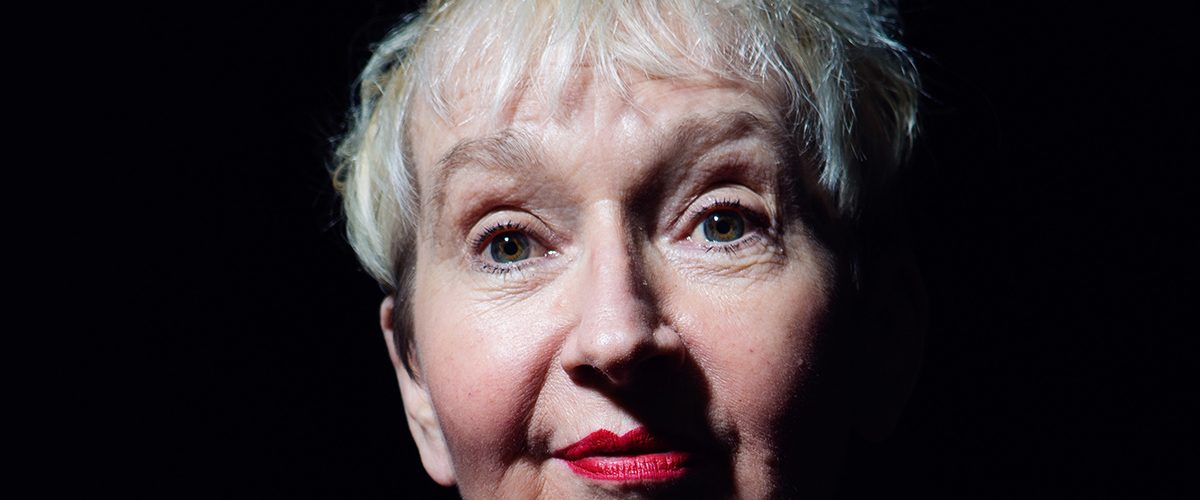Su Pollard reveals a grittier side in one-woman show, Harpy written for her by award-winning playwright Philip Meeks, that throws a light on mental illness and loneliness among the elderly.
How would you describe the show to someone who hasn’t seen it?
Su: “Harpy tells a funny and tragic story about one woman’s lifelong battle to find a treasured possession she once lost. It makes you think about the idea of mental health and how it’s dealt with. Birdie has mental health issues, but she also has a different way of looking at things that’s wiser than many of the characters she encounters. The play makes you wonder if some people are diagnosed as suffering from certain conditions just because they don’t quite fit in with society’s expectations of normal behaviour”.

What was it that initially drew you to the play?
Su: “Firstly, the big attraction was having a play written for me. That has never happened, so I was mega excited! Secondly, when I read the script I was immediately struck by how real, sincere, poignant and funny it was. A piece well worth doing”.
You previously created the role as your Edinburgh Fringe debut in 2018. What excites you most about returning to this character and has your relationship with her changed?
Su: “I was very gratified to play Birdie, so I am thrilled to be revisiting her. The author, Philip Meeks, has been able to add more scenes to the piece, enabling her to show more sides of her character and have more layers, bringing out more of her quirks”.

Some people take hoarding to the extreme. What’s the weirdest thing you’ve kept hold of?
Su: “It’s not really weird but I have had a long, multicoloured hand-knitted dress with a big collar for 40 years and I can turn it into a mini skirt. It is marvellous”.
Do you think modern discussions of mental health are inclusive of an older generation, or do we focus too much on the millennials?
Su: “Mental Health is now thankfully on the agenda and people are able to talk openly about it. But only a few decades ago it was still a taboo subject. People were told to pull their bootstraps up and get on with things. There must be thousands of older people who’ve lived their lives with illnesses like chronic depression but have never been able to say how they feel, and I think their voices and experiences are unheard. It’s also an issue that someone like Birdie, who had an extreme and more obvious mental illness, will have been through so many shifts in medication over the last few years. Mental health drugs are developing at a high rate. In the play she’s stopped taking her pills and I can’t say I blame her.”
What do you want audiences to take away from the production?
Su: “I’d like to think that they come away feeling hope and a bit more empathy about people who behave differently to themselves. Often, we latch on to those around us who are seen to not be ‘normal’ because they make us look completely sane, stable and socially acceptable, when if truth be told we all have our foibles and odd ways. Harpy is also a play about the lives that touch us where we live. Birdie collects lost stories and the histories of people long gone and forgotten. Hopefully it will make you look differently at the people you see every day where you live.”

A lot of people will know you as Peggy from the award-winning sitcom Hi-de-Hi! What is the biggest difference between performing on stage and screen?
Su: “For me, the biggest difference is that stage is immediate. It is live and the performance is happening that very minute and once only. Whereas TV is mostly recorded and often shown six months later, so is far less immediate. Also, stage work is one take!”
What are you most looking forward to while on tour?
Su: “I am looking forward to re-visiting theatres I have played before and playing new venues. It is always exciting to enter a new stage door. I am hoping, too, to catch up with mates because some don’t live in London, so it is great to have a drink and a catch up”.





